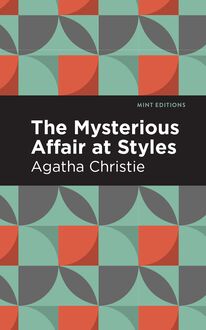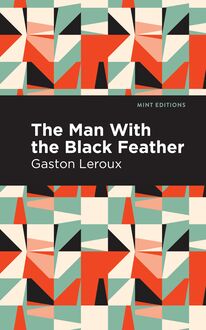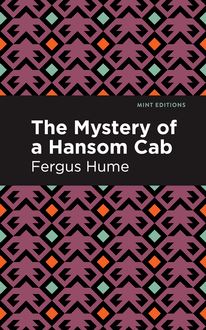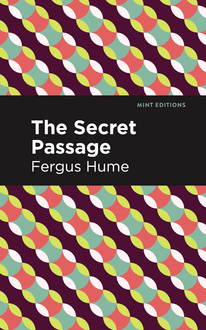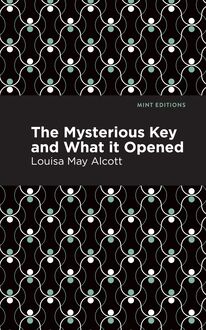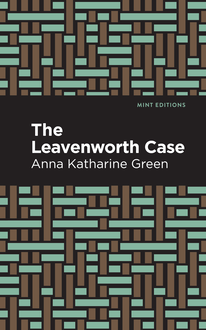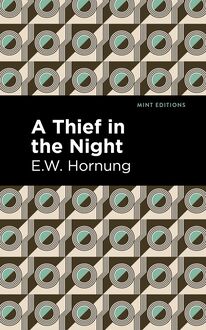-
 Univers
Univers
-
 Ebooks
Ebooks
-
 Livres audio
Livres audio
-
 Presse
Presse
-
 Podcasts
Podcasts
-
 BD
BD
-
 Documents
Documents
-
- Cours
- Révisions
- Ressources pédagogiques
- Sciences de l’éducation
- Manuels scolaires
- Langues
- Travaux de classe
- Annales de BEP
- Etudes supérieures
- Maternelle et primaire
- Fiches de lecture
- Orientation scolaire
- Méthodologie
- Corrigés de devoir
- Annales d’examens et concours
- Annales du bac
- Annales du brevet
- Rapports de stage
La lecture à portée de main
Vous pourrez modifier la taille du texte de cet ouvrage
Découvre YouScribe en t'inscrivant gratuitement
Je m'inscrisDécouvre YouScribe en t'inscrivant gratuitement
Je m'inscrisEn savoir plus
Vous pourrez modifier la taille du texte de cet ouvrage
En savoir plus

Description
“The immense talent, passion and literary brilliance that Conan Doyle brought to his work gives him a unique place in English letters.”-Stephen Fry
”Doyle’s modesty of language conceals a profound tolerance of the human complexity”-John Le Carré
”Holmes has a timeless talent, passion and literary brilliance that puts him heads, shoulders and deerstalker above all other detectives.”- Alexander McCall Smith
Arthur Conan Doyle’s The Memoirs of Sherlock Holmes is the quintessential collection of some of the most thrilling exploits of Detective Holmes and Dr. Watson. These eleven stories of literature’s greatest and most popular detective demonstrate Sherlock Holmes’s astounding power of deduction on full display. The stories in this treasured volume were initially published in serial form in The Strand magazine from December 1892 until December 1893, then in book form in late 1893. Set in the foggy moors of England and in the dark alleyways of Victorian London, this classic collection includes some of the best detective yarns ever written.
Among the most popular tales within The Memoirs of Sherlock Holmes are “Silver Blaze”, infamous for the “curious incident of the dog in the night-time”, and it’s setting in the late-Victorian sporting world; the controversial tale “The Adventure of the Cardboard Box”, originally deemed too inappropriate for publication in the original edition. Of all of the stories in the collection “The Final Problem” is the most notorious; Doyle had made the decision to stop writing about the character of Sherlock Holmes and within this legendary short story, killed off the character of Sherlock Holmes. This resulting outcry of the public was unlike anything else in literary history. Other stories include; “The Adventure of the Yellow Face”, “The Adventure of the Stockbroker’s Clerk”, “The Adventure of the Gloria Scott”, The Adventure of the Mugrave Ritual”, “The Adventure of the Reigate Squire”, “The Adventure of the Crooked Man”, “The Adventure of the Resident Patient”, “The Adventure of the Greek Interpreter”, and “The Adventure of the Navel Treaty”.As this brilliant collection demonstrates, Sherlock Holmes is one of the most engaging literary companions any reader could hope for.
With an eye-catching new cover, and professionally typeset manuscript, this edition of The Memoirs of Sherlock Holmes is both modern and readable.
Sujets
Informations
| Publié par | Mint Editions |
| Date de parution | 01 décembre 2020 |
| Nombre de lectures | 0 |
| EAN13 | 9781513272429 |
| Langue | English |
| Poids de l'ouvrage | 1 Mo |
Informations légales : prix de location à la page 0,0500€. Cette information est donnée uniquement à titre indicatif conformément à la législation en vigueur.
Extrait
The Memoirs of Sherlock Holmes
Sir Arthur Conan Doyle
The Memoirs of Sherlock Holmes was first published in 1893.
This edition published by Mint Editions 2020.
ISBN 9781513267425 | E-ISBN 9781513272429
Published by Mint Editions®
minteditionbooks.com
Publishing Director: Jennifer Newens
Design & Production: Rachel Lopez Metzger
Typesetting: Westchester Publishing Services
C ONTENTS I. S ILVER B LAZE II. T HE A DVENTURE OF THE C ARDBOARD B OX III. T HE Y ELLOW F ACE IV. T HE S TOCKBROKER ’ S C LERK V. T HE “ G LORIA S COTT ” VI. T HE M USGRAVE R ITUAL VII. T HE R EIGATE S QUIRES VIII. T HE C ROOKED M AN IX. T HE R ESIDENT P ATIENT X. T HE G REEK I NTERPRETER XI. T HE N AVAL T REATY XII. T HE F INAL P ROBLEM
I
S ILVER B LAZE
“ I am afraid, Watson, that I shall have to go,” said Holmes, as we sat down together to our breakfast one morning.
“Go! Where to?”
“To Dartmoor; to King’s Pyland.”
I was not surprised. Indeed, my only wonder was that he had not already been mixed up in this extraordinary case, which was the one topic of conversation through the length and breadth of England. For a whole day my companion had rambled about the room with his chin upon his chest and his brows knitted, charging and recharging his pipe with the strongest black tobacco, and absolutely deaf to any of my questions or remarks. Fresh editions of every paper had been sent up by our news agent, only to be glanced over and tossed down into a corner. Yet, silent as he was, I knew perfectly well what it was over which he was brooding. There was but one problem before the public which could challenge his powers of analysis, and that was the singular disappearance of the favourite for the Wessex Cup, and the tragic murder of its trainer. When, therefore, he suddenly announced his intention of setting out for the scene of the drama it was only what I had both expected and hoped for.
“I should be most happy to go down with you if I should not be in the way,” said I.
“My dear Watson, you would confer a great favour upon me by coming. And I think that your time will not be misspent, for there are points about the case which promise to make it an absolutely unique one. We have, I think, just time to catch our train at Paddington, and I will go further into the matter upon our journey. You would oblige me by bringing with you your very excellent field-glass.”
And so it happened that an hour or so later I found myself in the corner of a first-class carriage flying along en route for Exeter, while Sherlock Holmes, with his sharp, eager face framed in his ear-flapped travelling-cap, dipped rapidly into the bundle of fresh papers which he had procured at Paddington. We had left Reading far behind us before he thrust the last one of them under the seat, and offered me his cigar-case.
“We are going well,” said he, looking out the window and glancing at his watch. “Our rate at present is fifty-three and a half miles an hour.”
“I have not observed the quarter-mile posts,” said I.
“Nor have I. But the telegraph posts upon this line are sixty yards apart, and the calculation is a simple one. I presume that you have looked into this matter of the murder of John Straker and the disappearance of Silver Blaze?”
“I have seen what the Telegraph and the Chronicle have to say.”
“It is one of those cases where the art of the reasoner should be used rather for the sifting of details than for the acquiring of fresh evidence. The tragedy has been so uncommon, so complete and of such personal importance to so many people, that we are suffering from a plethora of surmise, conjecture, and hypothesis. The difficulty is to detach the framework of fact—of absolute undeniable fact—from the embellishments of theorists and reporters. Then, having established ourselves upon this sound basis, it is our duty to see what inferences may be drawn and what are the special points upon which the whole mystery turns. On Tuesday evening I received telegrams from both Colonel Ross, the owner of the horse, and from Inspector Gregory, who is looking after the case, inviting my co-operation.”
“Tuesday evening!” I exclaimed. “And this is Thursday morning. Why didn’t you go down yesterday?”
“Because I made a blunder, my dear Watson—which is, I am afraid, a more common occurrence than any one would think who only knew me through your memoirs. The fact is that I could not believe it possible that the most remarkable horse in England could long remain concealed, especially in so sparsely inhabited a place as the north of Dartmoor. From hour to hour yesterday I expected to hear that he had been found, and that his abductor was the murderer of John Straker. When, however, another morning had come, and I found that beyond the arrest of young Fitzroy Simpson nothing had been done, I felt that it was time for me to take action. Yet in some ways I feel that yesterday has not been wasted.”
“You have formed a theory, then?”
“At least I have got a grip of the essential facts of the case. I shall enumerate them to you, for nothing clears up a case so much as stating it to another person, and I can hardly expect your co-operation if I do not show you the position from which we start.”
I lay back against the cushions, puffing at my cigar, while Holmes, leaning forward, with his long, thin forefinger checking off the points upon the palm of his left hand, gave me a sketch of the events which had led to our journey.
“Silver Blaze,” said he, “is from the Isonomy stock, and holds as brilliant a record as his famous ancestor. He is now in his fifth year, and has brought in turn each of the prizes of the turf to Colonel Ross, his fortunate owner. Up to the time of the catastrophe he was the first favourite for the Wessex Cup, the betting being three to one on him. He has always, however, been a prime favourite with the racing public, and has never yet disappointed them, so that even at those odds enormous sums of money have been laid upon him. It is obvious, therefore, that there were many people who had the strongest interest in preventing Silver Blaze from being there at the fall of the flag next Tuesday.
“The fact was, of course, appreciated at King’s Pyland, where the Colonel’s training-stable is situated. Every precaution was taken to guard the favourite. The trainer, John Straker, is a retired jockey who rode in Colonel Ross’s colours before he became too heavy for the weighing-chair. He has served the Colonel for five years as jockey and for seven as trainer, and has always shown himself to be a zealous and honest servant. Under him were three lads; for the establishment was a small one, containing only four horses in all. One of these lads sat up each night in the stable, while the others slept in the loft. All three bore excellent characters. John Straker, who is a married man, lived in a small villa about two hundred yards from the stables. He has no children, keeps one maid-servant, and is comfortably off. The country round is very lonely, but about half a mile to the north there is a small cluster of villas which have been built by a Tavistock contractor for the use of invalids and others who may wish to enjoy the pure Dartmoor air. Tavistock itself lies two miles to the west, while across the moor, also about two miles distant, is the larger training establishment of Mapleton, which belongs to Lord Backwater, and is managed by Silas Brown. In every other direction the moor is a complete wilderness, inhabited only by a few roaming gypsies. Such was the general situation last Monday night when the catastrophe occurred.
“On that evening the horses had been exercised and watered as usual, and the stables were locked up at nine o’clock. Two of the lads walked up to the trainer’s house, where they had supper in the kitchen, while the third, Ned Hunter, remained on guard. At a few minutes after nine the maid, Edith Baxter, carried down to the stables his supper, which consisted of a dish of curried mutton. She took no liquid, as there was a water-tap in the stables, and it was the rule that the lad on duty should drink nothing else. The maid carried a lantern with her, as it was very dark and the path ran across the open moor.
“Edith Baxter was within thirty yards of the stables, when a man appeared out of the darkness and called to her to stop. As he stepped into the circle of yellow light thrown by the lantern she saw that he was a person of gentlemanly bearing, dressed in a grey suit of tweeds, with a cloth cap. He wore gaiters, and carried a heavy stick with a knob to it. She was most impressed, however, by the extreme pallor of his face and by the nervousness of his manner. His age, she thought, would be rather over thirty than under it.
“‘Can you tell me where I am?’ he asked. ‘I had almost made up my mind to sleep on the moor, when I saw the light of your lantern.’
“‘You are close to the King’s Pyland training-stables,’ said she.
“‘Oh, indeed! What a stroke of luck!’ he cried. ‘I understand that a stable-boy sleeps there alone every night. Perhaps that is his supper which you are carrying to him. Now I am sure that you would not be too proud to earn the price of a new dress, would you?’ He took a piece of white paper folded up out of his waistcoat pocket. ‘See that the boy has this to-night, and you shall have the prettiest frock that money can buy.’
“She was frightened by the earnestness of his manner, and ran past him to the window through which she was accustomed to hand the meals. It was already opened, and Hunter was seated at the small table inside. She had begun to tell him of what had happened, when the stranger came up again.
“‘Good-evening,’ said he, looking through the window. ‘I wanted to have a word with you.’ The girl has sworn that as he spoke she noticed the corner of the little paper packet protruding from his closed hand.
“‘What business have you here?’ asked the lad.
“‘It’s business that may put something into your pocket,’
-
 Univers
Univers
-
 Ebooks
Ebooks
-
 Livres audio
Livres audio
-
 Presse
Presse
-
 Podcasts
Podcasts
-
 BD
BD
-
 Documents
Documents
-
Jeunesse
-
Littérature
-
Ressources professionnelles
-
Santé et bien-être
-
Savoirs
-
Education
-
Loisirs et hobbies
-
Art, musique et cinéma
-
Actualité et débat de société
-
Jeunesse
-
Littérature
-
Ressources professionnelles
-
Santé et bien-être
-
Savoirs
-
Education
-
Loisirs et hobbies
-
Art, musique et cinéma
-
Actualité et débat de société
-
Actualités
-
Lifestyle
-
Presse jeunesse
-
Presse professionnelle
-
Pratique
-
Presse sportive
-
Presse internationale
-
Culture & Médias
-
Action et Aventures
-
Science-fiction et Fantasy
-
Société
-
Jeunesse
-
Littérature
-
Ressources professionnelles
-
Santé et bien-être
-
Savoirs
-
Education
-
Loisirs et hobbies
-
Art, musique et cinéma
-
Actualité et débat de société
- Cours
- Révisions
- Ressources pédagogiques
- Sciences de l’éducation
- Manuels scolaires
- Langues
- Travaux de classe
- Annales de BEP
- Etudes supérieures
- Maternelle et primaire
- Fiches de lecture
- Orientation scolaire
- Méthodologie
- Corrigés de devoir
- Annales d’examens et concours
- Annales du bac
- Annales du brevet
- Rapports de stage

